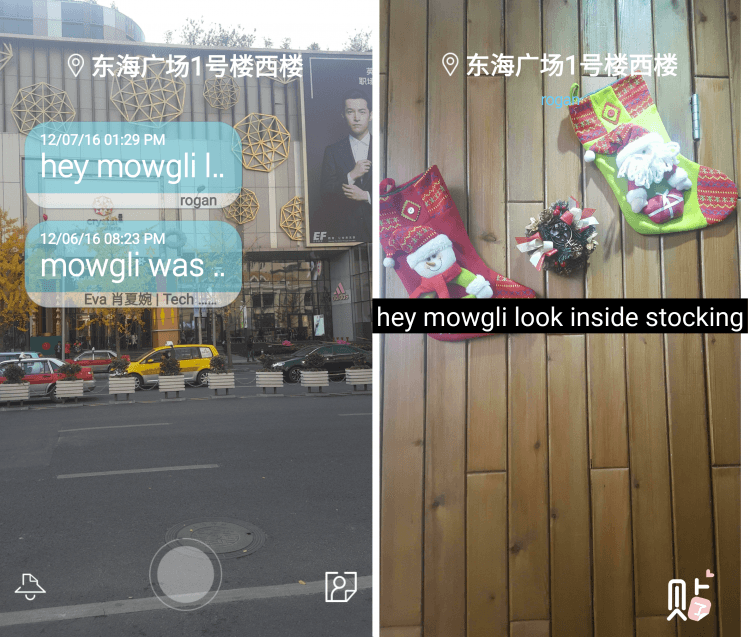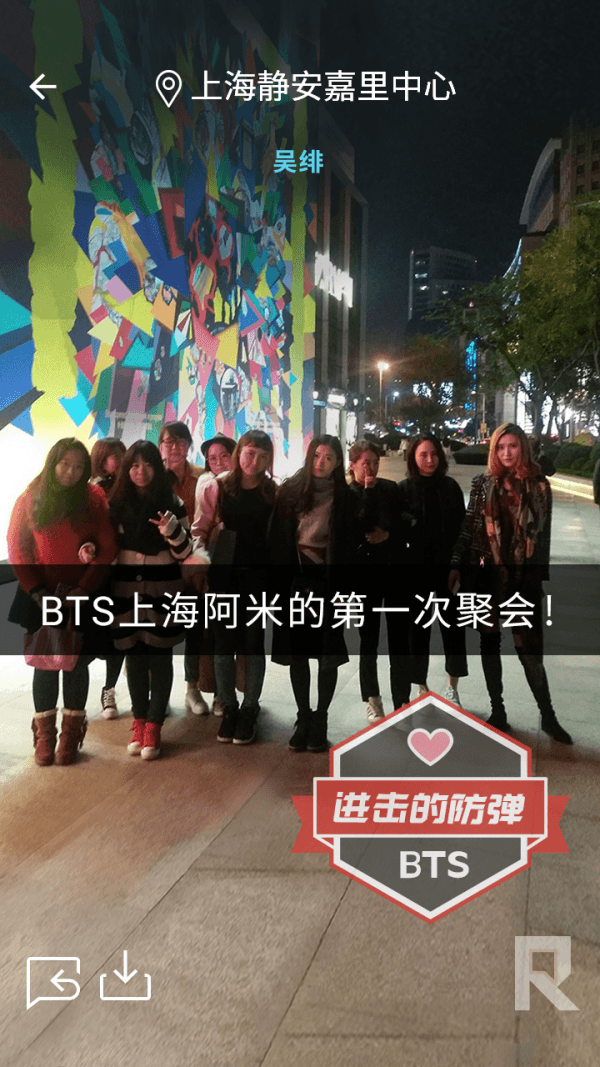
Leaving a love note the old-fashioned way. Photo credit: hojusaram.
The virtual world is saturated with content. Hundreds of millions of photos are uploaded to Facebook every day. Every second, more than 8,000 photos are shared on Snapchat. There’s no lack of photos on social networking apps, but what’s missing is context, argues Rudy Lee, CEO and founder of VRex Lab.
“For us, location – a physical context – is core,” Rudy tells Tech in Asia. “Instead of tagging locations onto a picture, we’re basically tagging photos onto a location.”
VRex Lab is an augmented reality startup based in Shanghai. The company’s first product, a mobile app called Rush, is an attempt to tether social media content – a photo and a message – to the real world. After taking a photo, users can attach a short message and pin the post to a specific location. To find and discover posts nearby, users scan their surroundings through the app with their smartphone camera, similar to how Pokemon Go users find Pokemon (which also means Rush isn’t technically augmented reality.
Tagging users to posts makes them private; public posts are visible to anyone with a Rush account. At the moment, VRex Lab is experimenting with a 300-meter radius of post visibility. By only making posts visible once you’re near the location where they were posted, VRex Lab hopes to make photos more powerful and easier to connect with.
“The point is to go feel the location, get a sense of what your friend’s been doing, and then immerse yourself into that feeling,” explains Rudy.

Left: Discovering nearby posts. Right: Clicking on a post shows the photo and message.
Love notes
The idea of Rush came about spontaneously when two of Rudy’s friends visited Seoul, his hometown. While sightseeing at one of the city’s most touristy spots, Namsan Tower, he had an epiphany.
“When you go to that tower, there’s a long, long wire fence with love locks,” he says. Visitors can add their own love lock and scribble love notes on it. After attaching their own lock to the fence, Rudy’s friends realized they would probably never see their lock again.
“People want to leave traces, but it’s kind of hard to do that physically,” says Rudy. “Virtually doing that offers a better experience.”
That was a key pivot for VRex Lab. Prior to Rush, the team was working on a virtual reality shopping app. They had already prototyped an app and partnered with several Korean fashion designers when they decided to scrap everything and switch to augmented reality. Chinaccelerator, an early-stage accelerator based in Shanghai, accepted VRex Lab for their virtual reality pitch. Luckily, they were willing to give VRex Lab’s augmented reality app a shot too. After all, the AR industry is estimated to be worth US$90 billion by 2020, according to investment banking and consulting firm Digi-Capital. The forecast for virtual reality, on the other hand, is a third of that.
The startup is targeting the South Korea and mainland China market. In China, the app is called “Tiele,” which literally translates to “posted.”

The founding team of VRex Lab (left to right): Ricky Kang and Rudy Lee. Photo credit: VRex Lab.
VRex Lab hopes to capitalize on the advertising and marketing potential of its AR photo messages. The startup has already been approached by a few companies, including AB InBev, which owns Budweiser, to promote products within Rush. Another monetization opportunity could be charging advertising fees for retailers or shops, says Rudy, as the app’s posts are tied to specific locations.
However, the startup primarily sees itself as a way for people to leave secret or private messages. For example, a lot of notes from the app’s early adopters are directed at romantic partners, such as sentimental ‘hey, we did this here’ messages, he says.
K-Pop fever
Like any social media or content application, VRex Lab’s biggest hurdle will be attracting users – and convincing them to stay. It’s competing against Snapchat, WeChat, and other popular social apps for a spot on a user’s home screen.
But VRex Lab does have a unique asset: Rudy’s connection to Korea’s pop culture scene. Before Rush, Rudy founded 37th Degree, which made music videos and commercials with Korean pop-culture celebrities. That gives him insight into the K-Pop market, which has attracted the intense fandom of young Chinese people.
For instance, since airing in February, Korean drama The Descendents of the Sun has drawn more than 2.4 billion views on Chinese video-streaming platform IQiyi. Laneige lipsticks from cosmetics company AmorePacific, which are featured in the drama, have even sold out in several stores in Seoul because of Chinese consumers, according to AmorePacific.

Rush users can put K-Pop themed stickers such as South Korean boy band Bangtan Boys (BTS) on their photos. In the future, VRex Lab plans to add K-Pop celebrity cutouts to Rush too, so users can “pose” with their favorite pop idols. The startup has sealed an official partnership with Loen, the company behind Melon, a Korean music streaming app in South Korea. In the future, VRex Lab will be able to onboard selected artists and stock photos.
But the startup doesn’t want to rely too heavily on K-Pop to power the company’s product.
“It’s not like [users] will just do anything just for the sake of K-Pop,” emphasizes Rudy. “When we get these initial users, whether it’s thanks to [an internet celeb] or a K-Pop star, […] I want to make sure that [the app is] something extremely fun that they come back with or without any connection to the star.”
This post https://www.techinasia.com/vrex-lab-profile appeared first on Tech in Asia.
from Tech in Asia https://www.techinasia.com/vrex-lab-profile
via IFTTT
No comments:
Post a Comment